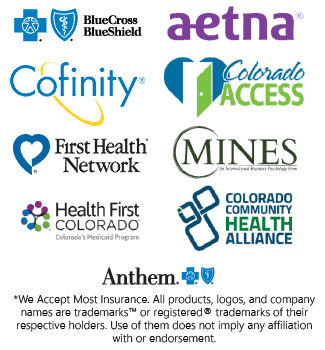Medical Detoxification
Medically monitored detox is an important first step on every journey of addiction recovery. Because the symptoms associated with drug and alcohol withdrawal can be unpredictable, they must be closely overseen and treated by a team of licensed medical professionals in order for complications to be successfully avoided. At CuraWest we have developed an effective detox program in Denver, Colorado for people of all ages suffering from addictive disorders of all types and severities. We focus on more than a safe withdrawal from drugs and alcohol — we work to lay a solid foundation for continued success in sobriety.
We offer a range of detoxification services and amenities all geared towards making withdrawal as comfortable as possible. Our team of experienced professionals includes licensed doctors and nurses, behavioral therapists, and addiction counselors. The duration of our detox program varies based on the unique needs of each individual client. Factors that affect program length include the duration of use, which substances were being used, the severity of the addiction (mild, moderate, severe), and the presence of underlying and pre-existing conditions. At CuraWest we treat physical and psychological withdrawal symptoms the moment they develop, ensuring a short-lived and comfortable detoxification experience.
In addition to providing around-the-clock medical care, we begin addressing the mental, emotional, and spiritual implications of addiction. We take a holistic approach to recovery during every stage of the treatment process, focusing on the mind, body, and spirit simultaneously.
We understand that fear of undergoing withdrawal prevents many people from getting sober. If you have attempted to detox on your own, there is a good chance you have returned to substance use before the process concluded. Without professional intervention the physical symptoms of withdrawal are often too much to bear. When you commit to a medical detox program like that offered by CuraWest, you can expect your comfort level to be prioritized consistently. By the time your withdrawal symptoms subside you will be refreshed, renewed, and ready to take the next appropriate step on your personal recovery journey.
Steps to Medical Detox
The medical detoxification process can be broken down into three distinct stages. As you move through each stage of the process you will be guided along by our team of compassionate and experienced professionals, who will thoroughly address your needs and ensure you are as comfortable as possible.
Steps to Medical Detox
Upon admission to our medical detox center in Denver, Colorado, each client undergoes a detailed evaluation. This evaluation covers personal medical history, history with substance use and dependence, the presence of psychological disorders, pre-existing medical conditions, and personal treatment goals. It is important for the detox team to get a good feel for your withdrawal potential so they can accurately determine which detox methods are going to work best for you. For example, someone with a personal history of major depression who has been suffering from a severe alcohol use disorder will require much different care than someone who has been misusing prescription stimulants for several months.
The symptoms of withdrawal must be adequately treated in order for longer term sobriety to be achieved. However, medical detox is about more than undergoing withdrawal in a safe, supervised environment. During the evaluation stage of the process, we uncover additional areas that need to be addressed. These could include underlying mental health conditions, unresolved trauma, chronic physical illness, infectious diseases, or injuries caused by substance use. We also determine your personal goals for the remainder of the treatment process, which helps our clinical team develop your individualized aftercare plan.
Stabilization
Once the detailed evaluation is complete, the client will move on to the next stage of the process — stabilization. Each client must be physically stabilized before transitioning into the next appropriate level of care. Vital signs are checked and recorded throughout the day (blood pressure, heart rate, body temperature, and respiration). Progress is tracked, and if any potentially dangerous physical or psychological symptoms develop they will be instantaneously addressed. Some symptoms of withdrawal can be uncomfortable but are not immediately dangerous or life-threatening. Examples of such symptoms include sleeplessness, headaches, nausea, stomach cramping, muscle aches, and joint pain. Most of these symptoms can be easily treated with a combination of bed rest and over-the-counter medications. More severe symptoms like seizures, hallucinations, and severe anxiety require more intensive medical intervention, and will be closely monitored until they subside completely.
Preparation
Once symptoms of acute withdrawal have subsided, clients begin preparing for the transition into a higher level of clinical care. During the detox phase of our treatment program, clients work directly with their assigned case manager and individual therapist in developing a personalized plan for continuing care. An extended stay in an inpatient program often comes recommended, though we understand this treatment model is not ideal for everyone. Some of our clients either require more flexibility in their day-to-day lives, or they have a mild substance use disorder and would benefit just as much from an outpatient program. During the preparation stage of detox we help you plan out your next step and equip you with all of the resources you need to stay on the right path.
We Are Here For You
Let Us Help You Heal
Our Drug & Alcohol detoxification experience is second to none.
Learn how we can help by speaking with one of our Treatment Advisors today.
Substances That Require Medical Detox
Which substances require medical detox? As a general rule, anyone who has been misusing a substance for longer than several weeks should enter into a detox program for at least 72 hours of observation. Drug and alcohol withdrawal can be unpredictable, and it is difficult to pinpoint exactly how your system will respond to the detoxification process. You might feel fine for the first few days and suddenly experience a sharp decline in physical health. When it comes to detox it is always better to be cautious. At CuraWest we specialize in highly individualized care, developing a personalized detox plan for each unique client. The type of substance(s) you were using will always be taken into consideration.
Alcohol Detox
The symptoms associated with alcohol withdrawal can be particularly severe, especially if you were a heavy drinker and you consumed alcohol on a daily or near daily basis. Symptoms of alcohol withdrawal might include:
- Body tremors.
- Headaches.
- Muscle aches and pains/general feelings of physical discomfort.
- Upset stomach (nausea, vomiting, diarrhea).
- Hallucinations and delusions.
- Severe anxiety.
- Depression and suicidal ideation.
- Grand mal seizures.
Severe alcoholism can devolve into delirium tremens; a life-threatening symptom of alcohol withdrawal. Delirium tremens can be effectively treated with a combination of benzodiazepines and anticonvulsant medications, and needs to be closely monitored around-the-clock. Even moderate drinkers can experience severe symptoms of alcohol withdrawal.
Stimulant Drug Detox
Stimulant drugs include illegal substances like cocaine and methamphetamine and prescription stimulants like Adderall, Ritalin, and Concerta. The symptoms of stimulant withdrawal are largely psychological in nature and can often be treated with a combination of rest, adequate nutrition, and non-narcotic medications. Symptoms of stimulant withdrawal include:
- Increased agitation and irritability.
- Increased appetite.
- Fatigue/increased need for sleep.
- Insomnia.
- Depressed mood.
- Restlessness.
One of the most common and severe symptoms of methamphetamine and cocaine withdrawal is craving. Intense and overwhelming drug cravings can lead a person back to drug use before the detox process is over. We effectively treat all symptoms associated with stimulant withdrawal while providing clients with a structured environment conducive to relapse prevention.
Our Drug & Alcohol Detox Services Include
Benzodiazepine Detox
Like alcohol, the symptoms associated with benzodiazepine withdrawal can be dangerous when left untreated. Benzodiazepines are a type of medication most commonly prescribed for the treatment of anxiety and sleep-related issues. Common brand name benzodiazepines include Xanax, Ativan, Klonopin, Valium, and Librium.
Opioid Detox
The symptoms associated with opioid withdrawal are rarely life-threatening, but they can be extremely uncomfortable when left untreated. Opioids include illegal opiates like heroin, prescription opioids like oxycodone and hydrocodone, and synthetic opioids like fentanyl. The physical withdrawal symptoms of all opioids are similar, and include:
- Muscle aches and joint pain.
- Nausea, vomiting, and diarrhea.
- Severe stomach cramping.
- Flu-like symptoms, including runny nose, profuse sweating, and low grade fever.
- Restlessness and irritability.
- Insomnia (often coupled with fatigue).
- Psychological symptoms (anxiety and depressed mood).
- Intense and overwhelming drug cravings.
Opioid withdrawal is often treated with a combination of safe, non-narcotic medications, ample rest, and behavioral therapy. Clients begin to learn healthy coping skills and relapse prevention techniques, which will help them work through cravings without returning to opioid use.
Synthetic Drug Detox
Synthetic drug withdrawal is largely psychological in nature, and can result in serious complications when left untreated. Over the course of the past several years, synthetic drug use has been on the rise. Synthetic cannabinoids and cathinones like Spice, K-2 and bath salts are both easily accessible and relatively affordable, making them popular among adolescents and young adults as well as those in lower income brackets. Symptoms of synthetic drug withdrawal include:
- Severe anxiety.
- Paranoia.
- Delusional thinking.
- Depressed mood and suicidal ideation.
- Fatigue.
- Difficulty concentrating.
- Changes to mood.
- Agitation and irritability.
- Changes to appetite.
If a person has been using synthetic drugs regularly for a prolonged period of time, severe physical symptoms (seizures, heart palpitations) can develop. It is important for individuals who have been struggling with synthetic drug addiction to be closely monitored as they undergo withdrawal.
Ready To Begin Your Drug & Alcohol Detox?
We Offer A Safe & Effective Program
Don’t let Drug & Alcohol addiction control your life.
Call us today and let’s get you started on the path to a better you.
Psychedelic Drug Detox
Psychedelic drugs like psilocybin and LSD have garnered reputations as relatively safe and non-addictive. While these substances are not generally physically addictive, psychological dependence is possible and withdrawal can absolutely occur. Symptoms associated with psychedelic drug withdrawal include:
- Depression and suicidal ideation.
- Anxiety and paranoia.
- Detachment from reality and delusional thinking.
- Difficulty concentrating and other issues with cognitive functioning.
- Low impulse control.
Because individuals who use psychedelic drugs often combine them with other chemical substances, it is important for symptoms of withdrawal to be closely monitored.
What Happens After Medical Detox?
While medical detox is an important part of the recovery process, it is not effective as a standalone treatment option. Those who choose to return home immediately after detox are in a vulnerable position; cravings are still intense and they are extremely susceptible to relapse. What happens after medical detox will depend on your clinical needs and personal preferences. However, we recommend that our clients take advantage of our residential program once they have been physically stabilized. This allows clients the opportunity to work with their individual therapist and case manager for a longer period of time, delving deeper into personal challenges and laying a solid foundation for lasting sobriety. If you choose to transition into a separate inpatient treatment program or into an entirely different level of care, we will help you make the transition as seamless as possible. At CuraWest, your client experience does not come to an end simply because you have graduated from our program. We check in regularly to ensure you are thriving in your recovery, and we are always available to provide any resources, services, or support to help make your ongoing journey as fulfilling as possible.
Begin Healing Now!
Have A Call With One Of Our Treatment Advisors
Don’t Suffer Any Longer
If you or someone you love has been attempting to overcome drug or alcohol addiction with little to no success, medical detox is likely necessary — and CuraWest is available to help. As soon as you contact us you will be put in contact with an experienced Treatment Advisor who will walk you through each step of our simple, straightforward admissions process. We begin by conducting a brief assessment over the phone. This will help our clinical and medical team determine which detox services are the most appropriate for each unique case. Next, we offer a free, no obligation health insurance benefit check to those who are currently insured. If you or your loved one is uninsured, we offer additional coverage options including self-pay and private pay. Finally, we help organize local ground transportation to our Denver, Colorado detox center. Contact us today for more information on how to get sober, or to begin your own personal journey of addiction recovery.


















